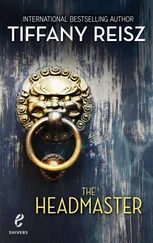1 ...7 8 9 11 12 13 ...24 Percival was lucky that he still had a few of the silver coins his father had provided, and with these he barely managed to feed himself. In late spring, as deaths from starvation became common, the Japanese declared that those with foreign papers could apply for exit permits. Percival had the French laissez-passer he’d used to enter Hong Kong. He learned that the freighter Asama Maru would sail for Saigon in two weeks, and some said that things were better in Indochina. Percival used the last of the Qing coins to pay the bribe for an exit permit, and to purchase a ticket on the boat. All he had left was the family charm, the reassuring lump around his neck, which he was careful to keep out of sight lest he be killed for it by a Kempeitai. Down by the docks, Percival recognized a number of Cecilia’s family’s ships, which had been seized by the Imperial Navy. They were being repainted in military grey and branded with the Rising Sun insignia. Percival had not seen Cecilia since the invasion. He thought about her often, but Sai Tai was keeping her well hidden.
A week before Percival’s ship was due to sail, a woman in peasant dress approached Percival on the street. Sai Tai had sent her maid to summon him. The next day Percival found the apartment building, climbed the stairs, and at the precise time he had been commanded to appear knocked on a green wooden door. The door swung open. Percival was startled to see Cecilia’s mother rather than her servant standing before him. She wore a formal silk robe that was incongruous with the modest apartment.
“You are …?” she asked, as if she did not know. As if she had not summoned him. The matriarch fixed him with her narrow eyes, dared him to speak. He was frozen, as terrified as if she were a Japanese officer.
“Is something wrong with your legs?” she said. “Come in. Close the door.”
Percival did as instructed.
Sai Tai glided across the room, her feet hidden by generous silk folds. She came to a rosewood chair, its wood so dark that the chair emerged from shadow only when she lowered herself regally into its arms. Percival followed meekly, unsure how close to approach, erring on the side of being a little far away.
“Are you a mute?” she said. “Introduce yourself.”
“I am called Chen Pie Sou,” said Percival, guessing that she cared more about his Chinese name. “It is a great honour to meet you, madam.” He stepped forward and bowed his head.
“I wish I could say the same.” She sat intensely straight, as if sitting in such company required immense effort. “Understand that I wanted my daughter to marry someone suitable to her family’s stature.”
“Naturally, madam.”
“My maid tells me your family is in the rice trade.”
“Yes, madam.”
“However, I have never done business with them. They must not be very important.” As she leaned forward, her jade bracelets clicked against the arms of the chair.
“I’m sure you are correct, madam,” said Percival.
“But people always need rice. At least you are not completely worthless.”
“We have a house in Indochina, which my father built. It is—”
“Your family has a house?” she barked. “You think this is worth mentioning? Then you are very nearly worthless.”
“Yes, madam.” Percival went down on one knee, his heart pounding, and imagined his head being lopped off.
“Get up!” He reminded himself that it was Japanese soldiers who decapitated their prisoners. Wealthy old women with jade-heavy arms were not known to do this. “Is my daughter running around with a totally spineless wretch?” Percival scrambled to his feet. “You are not bad-looking,” she said.
“Thank you, madam.”
“Good-looking men are indiscreet. They cannot be trusted.”
“Yes, madam.”
“So you agree. You are not trustworthy?”
“Not at all. I mean, no. I don’t agree. No, no, in fact, I am not very good-looking. That’s what I mean.”
Sai Tai sat back a little. “At least you make an effort to show some respect. Unlike my daughter. I am told that you have a French laissez-passer and an exit permit from Hong Kong. I’ve heard you have a cabin on the Asama Maru , and will soon be leaving for your home in Indochina?”
“Yes, madam.” He could barely utter these words, never mind being able to clarify matters. It made no difference, he thought, that he had never been to Indochina. His papers said that he was a resident of that country.
“I am told that the French and the Japanese have some kind of deal, that it dampens the bestial behaviour of the Japanese in Indochina. They say this year’s rice crop was good in Annam, and no one goes hungry, despite the Japanese occupation. Is this true?”
“I have heard the same,” he said.
“Your household must have stores of rice?” Only then, he noticed that her cheeks were less haughty than he had seen them before, perhaps a little hollow? Did even Sai Tai, he wondered, feel the hunger of the occupation? “You have the means to care for my daughter?”
Years before, along with peppercorns, cinnamon, nutmeg, and brandy, Chen Kai had brought with him on a visit to Shantou a photo of the house he had built in Cholon. It was six storefronts wide, and three floors high. Within, Chen Kai explained, were high-ceilinged warehouse rooms for fresh paddy and threshed rice. There was no building so spacious and grand in Shantou, he declared. Chen Pie Sou had resented his father’s taking of a second wife. Muy Fa had stared at the photo of Ba Hai in front of the house, and criticized the building’s extravagant size, saying nothing of her husband’s Annamese wife. Ba Hai was a small-boned, dark-skinned foreigner wearing Chinese clothes in the photo. As a boy, Chen Pie Sou swallowed his question; why, if his father had found enough gold to build a house like that and take a second wife, had he not returned to Shantou? But now, confronted by Sai Tai’s questions, Percival was glad to think that even Cecilia would admit that his family house was a decent size. “Yes,” he said, with a small burst of confidence. “My family has ample means to care for your daughter. Our house is large. Our warehouses are full of rice.” This last must be true, he reasoned, as his father was a rice trader.
“Then take my daughter with you to Indochina. Better that she escape with you, though almost worthless, than stay here and be devoured by Japanese dogs. Remember, I am choosing you as an option preferable to dogs. Come tomorrow at the same time for your wedding.” She waved him off, not moving from her carved chair.
Trembling, he backed away in stumbling bows, and fled down the stairs. That was how the couple became engaged. Cecilia’s mother did not offer her daughter’s hand. She commanded Percival to take it. As he left the apartment, Percival rejoiced at his good fortune—that the very rubble and stink that he was picking his way through had led to his engagement with the girl he longed for. The next day, they were married in the sixth-floor apartment by one of the La Salle priests who had somehow survived the Japanese invasion. Cecilia wore the cheongsam in which Sai Tai had once been married, and glared at her mother through the whole ceremony.
A few days later, standing on the deck of the Asama Maru in formal dress, the newlywed couple waved goodbye to Sai Tai, who sat in a canopied rickshaw on the dock. As Hong Kong retreated across the choppy water, Cecilia said, “I dreamt of Paris, or London, but I have married a country bumpkin who is dragging me into the Indochina mud.”
“But you spread the rumour that we wished to marry—”
“Were you stupid enough to believe that I would actually want to marry you?” She whirled away from him. “I fooled with you precisely because it was inconceivable that I could ever marry so beneath me. I did it to keep my mother’s suitors away. If it wasn’t for the war, she would have agreed by now to send me to England or America—in order to get me away from you!” She stalked towards the companionway, and shouted across the deck, “Now see what I’m stuck with!” She disappeared below. Percival looked around, saw the other passengers turn away.
Читать дальше












